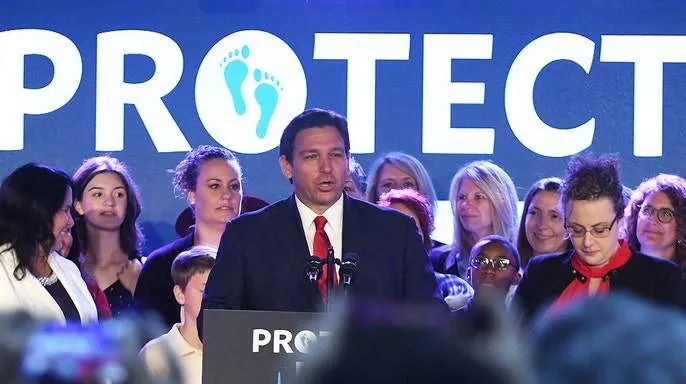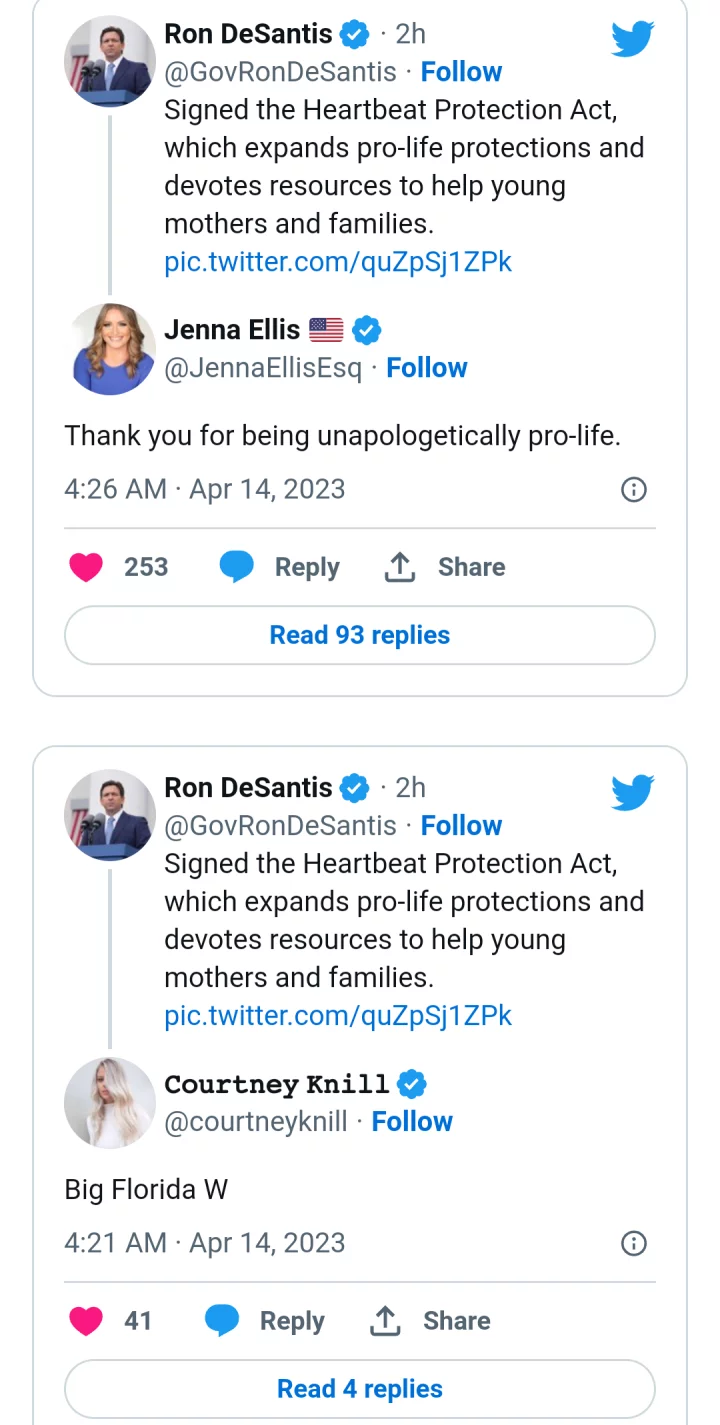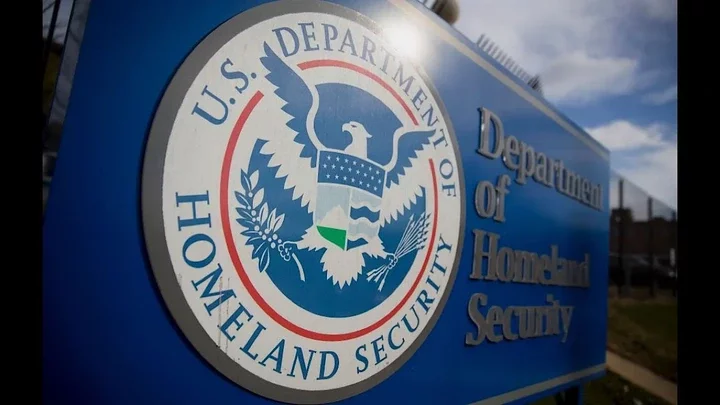
Florida Governor and 2023 Republican presidential candidate, Ron DeSantis signed the Heartbeat Protection Act into law Thursday evening, April 13, just hours after the legislation cleared the Florida legislature.
The new law expands protections to unborn children, giving them full rights to life once a fetal heartbeat is detected, which can be as early as six weeks of pregnancy. It also provides funding to help mothers across the state.

"Signed the Heartbeat Protection Act, which expands pro-life protections and devotes resources to help young mothers and families," DeSantis wrote on Twitter Thursday, sharing a photo of himself at his governor's desk where he is signing the law.
In the photo, DeSantis is surrounded by pro-life lawmakers and advocates.

Opponents of the law argue that by the time most women find out they're pregnant, it will already be too late to have an abortion.
Earlier in the day, the Florida legislature passed the Heartbeat Protection Act, or SB 300, which establishes protections for unborn babies with a heartbeat beginning at six weeks' gestation.
The new law also allocates $25 million in funds for pregnancy centers around the state. The money is expected to help women during their pregnancy and after the child is born.
After the heartbeat bill passed the Florida legislature, the White House issued a statement critical of the "extreme and dangerous" legislation.
"Today, Florida's Republican supermajority-controlled legislature sent an extreme and dangerous new abortion ban to Governor DeSantis's desk for signature. The ban flies in the face of fundamental freedoms and is out of step with the views of the vast majority of the people of Florida and of all the United States," White House press secretary Karine-Jean Pierre said in a statement.
"This ban would prevent four million Florida women of reproductive age from accessing abortion care after six weeks - before many women even know they're pregnant. This ban would also impact the nearly 15 million women of reproductive age who live in abortion-banning states throughout the South, many of whom have previously relied on travel to Florida as an option to access care."
The legislation allows exceptions to save the life of the woman or for cases of rape or incest until 15 weeks of pregnancy.
















Comments